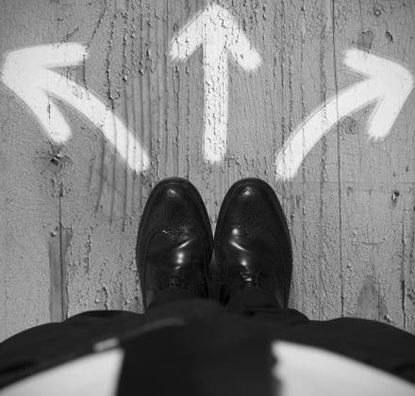
The California Supreme Court decided to permanently lower the cut score for the passing exam and offer recent law grads to take the licensing test remotely in October or obtain provisional licenses that will allow them to temporary practice law without passing the exam, in response to the ongoing crisis caused by the coronavirus pandemic.
In a July 16 letter to the chair of the State Bar of California’s board of trustees, Alan K. Steinbrecher, the court requested the bar to work with the National Conference of Bar Examiners NCBE to administer a two-day online test in October.
“The court has sought the safest, most humane and practical options for licensing law graduates by encouraging and working with the State Bar to pursue the option of administering the California Bar Examination online as a remote test, to avoid the need for, and dangers posed by, mass in-person testing,” the court wrote in a letter signed by its clerk and Chief Executive Officer Jorge E. Navarrete.
Around 9,000 would-be lawyers are registered to sit in for the California exam, which was originally scheduled for July and already postponed to early September because of COVID-19 concerns.
Graduates told the court they were losing job offers and could not find work to make ends meet- most of them fear they would not be able to pay student debts due November without a law license.
“The court recognizes that postponement of the bar examination may impact employment prospects, delay incomes, and otherwise impair the livelihoods of persons who recently have graduated from law school,” Navarrete wrote in the letter.
Making them sit through a two-day test would have created health risks in a time when COVID-19 infections are spiking in California, recent law grads said.
“The changing circumstances surrounding the ongoing COVID-19 pandemic in California, and throughout the country, have had an unprecedented impact on professional licensure testing for graduates seeking admission to many professions,” the court wrote to the State Bar. “Many law school graduates are being substantially affected by the resulting disruption.”
The State Supreme Court, after a lot of pressure from legal educators and law graduates, has also decided to drop the cut score from 1440 to 1390.
California’s bar exam is considered among the most rigorous in the nation with the preceding passing score was the second-highest in the nation and typically resulted in thousands of law graduates failing the licensing test.
In addition, the court said it recognized that many recent law grads might not be in a position to prepare for the fall bar exam and ordered the State Bar to create a temporary licensing program which would allow all 2020 graduates of California law schools and qualified out-of-state schools to practice under the supervision of licensed attorneys.
“At a minimum, this provisional licensure program shall remain in effect until at least June 1, 2022, to permit 2020 graduates maximum flexibility,” Navarette wrote. “This timeframe will afford the 2020 graduates several opportunities to take the exam of their choosing through February 2022 and await the exam results.”
The decision by the California Supreme Court was a disappointment for recent law grads who for months have been lobbying for diploma privilege and had urged the high court to cancel the exam altogether and simply allow them to practice law without the licensing test.
They say online test would lead to other problems such as the facial-recognition software needed to verify the graduates’ identities — which ACLU claim is discriminatory.
In a letter to the Supreme Court, the ACLU said the software has been known to confuse law-abiding minorities with police mug shots of people of color.
“Race, gender, disability, and other biases built into facial recognition algorithms all but guarantee test-takers from marginalized groups will also be disproportionately impacted by erroneous identifications during the exam and the ongoing surveillance risks that stem from having their biometric information enrolled in a facial recognition database,” four ACLU attorneys wrote.
“The State Bar must find a solution to the administration of the bar exam that will meaningfully address inequities, not perpetuate them,” the letter said.
Some legal experts, however, applaud the court’s decision to move the exam online. Christopher Chapman, President and CEO of AccessLex Institute, a nonprofit organization dedicated to the improvement of legal education told JD Journal given the arc of the pandemic in California, moving the exam online is the best option among the suboptimal choices available.
‘Coupling the move online with a lower cut score and a 2-year provisional licensure program provides 2020 graduates with a great opportunity to enter the practice of law without being prejudiced by the pandemic while maintaining the Bar’s interest in consumer protection.’ Chapman said.
‘AccessLex, which has provided millions of dollars of grants relating to bar exam structure and bar passage (including $515,000 to a CalBar project), believes that there will be much to learn from the CBX move online and the provisional licensure program – we look forward to participating in such future studies.’
According to Chapman lowering the cut score will lead to expanded access to the legal profession for all, with a most pronounced effect on underrepresented minorities and socio-economic groups.
A 2017 California Bar Standard Setting Study back-tested the July 2016 CBX results, lowering the cut score to 1414 and found that 11% more Hispanic takers and 13% more Black takers would have passed—if 1390 was used, these numbers would be even higher, Chapman said.
Chapman agrees with the CalBar that California is very much different than the states that have temporarily gone the diploma privilege route. While I believe that assertions of protecting the public from unqualified lawyers is often used as a pretext for other goals, the much greater access to its bar exam that California provides relative to all other states makes a strong case against diploma privilege.
‘AccessLex supports the study of various reforms, including diploma privilege, that would enhance access to the profession while maintaining properly defined standards of minimum competency and protection of the public.’ Chapman said.
















































